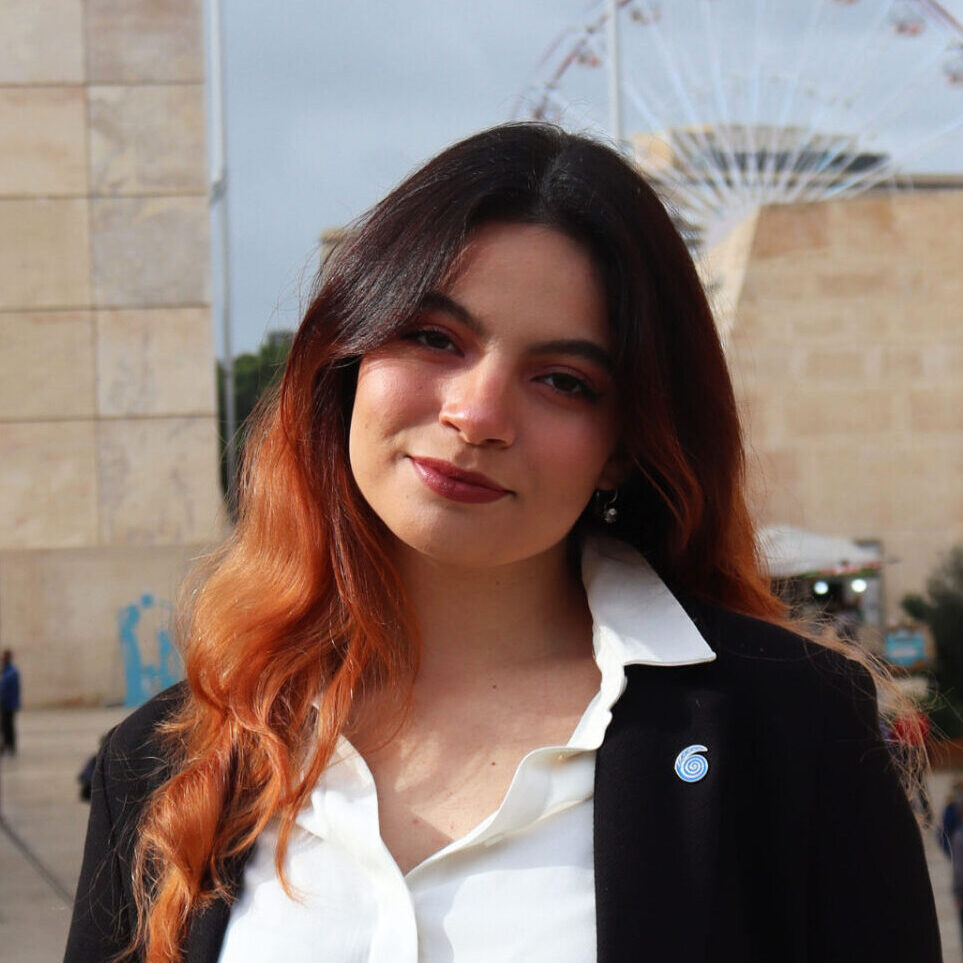This article was originally published in 2021.
Malta has once more topped the LGBTIQ rights index by far, for the 6th consecutive year, after having made notable strides toward a society that embraces its members of the said community. The state recently included sex characteristics as protected grounds in the Refugees Act and has allowed for the legal recognition of non-binary persons, not to mention it instituted legal gender recognition procedures for minors.1 A testimony of the government’s commitment to egalitarianism. As we celebrate this achievement one can not help but wonder how other parts of the world are faring.
In the past twenty years, Pew Research Center statistics have unveiled the growing global trend of acceptance concerning homosexuality. Close to a dozen countries, such as Kenya, have had a double-figure increase in the amount of surveyees declaring that LGBTIQ members should be accepted by society. Developed and more affluent countries have led the way in this progression, with nations such as the Netherlands and Sweden having over 90% of respondents of the Pew’s 2020 report endorsing more acceptance. Unfortunately, this progressive trend has not been felt globally.2
As we delve deeper into the new decade, the battle continues in the fight for equal treatment, as we shift our focus to certain Muslim and Catholic territories, whose affairs have shed light on some rather precarious circumstances. Here, rights which have been hard-fought are no longer assured and in certain regards are even being withheld.
Poland
Homophobia has become rampant on the majority of Poland’s streets, when in little over a year, regions extending to a third of the country, have been transformed into “LGBT-free zones”, declaring themselves “free of LGBTQ ideology.”3 Although the zones themselves do not possess any legitimate authority and are mostly symbolic, it encourages those who believe in them to be more vocal about their views and actively attempt to impose them within society. Rather ironic given that this is exactly what these people vilify members of the LGBTIQ community for, when being open about their sexuality and sexual identity.
“I’m more stressed. For the first time in my life I’m very, very scared,” Karolina Duzniak, a Polish citizen says, as she reflects on the growing tensions in her hometown with her girlfriend Ola Głowacka.4
Several Polish politicians have gone on to fan the flames of bigotry. Perhaps most notably is President Andrej Duda who referred to homosexuality as a foreign ideology which is “worse than communism.”5 Jarslaw Kaczynski, the governing party’s leader on the other hand went as far as to state that LGBTIQ members threaten the Polish state. The minister for education declared that “these people are not equal to normal people.”6 Not to mention Krakow’s archbishop’s statement that the country is under siege from a “rainbow plague.”7 Such homophobic rhetoric being uttered by the state and preached in churches, telling LGBTQ members they do not belong in Poland, as well as depicting them as dangerous, has led to increased hostility toward the queer community, making their members feel unsafe in their own country.
“It’s like I’m just less human than the other people,” states Ola Głowacka. “They can hold hands, they have children. Just because they’re like they are, they are better. But why?”8
The pursuit of intolerant, anti-LGBT legislation presented as a safeguard for traditional values has been compared to Russian tactics, notably an unwelcome similarity to draw in Poland. This being said, Moscow’s 2013 law banning LGBTIQ so called propaganda made use of a great deal of the same arguments, and harboured a similar global reaction.
Hungary
Hungary’s state of affairs with regard to LGBTIQ rights, is deplorable to say the least. The government has become infamous for its restrictive LGBTIQ policies. Notoriously having excluded the possibility of same-sex marriage from the Hungarian constitution and having limited same-sex couples’ prospects of adoption. Its intolerance was also felt when it prohibited the legal acknowledgement of transgender people, not to mention its frequent depiction of homosexuality as an aberration.9 This anti-democratic drift has rightfully attracted the attention of the European Union and its member states, as a cause for concern.
Hungarian Prime Minister Viktor Orban declared that the anti-LGBTQ constitutional amendment took place in an effort to reaffirm Christian Culture and the traditional definition of family and gender roles. The amendment stipulates that “the mother (of a child) is female, the father is a male,”10 and goes on to declare solely married couples eligible to adopt children, essentially excluding homosexuals since same-sex marriage is prohibited. This amendment goes on to assign the state with “protecting the right of children to self-identify according to their sex at birth,”11 mandating that children are brought up “in accordance with the values based on Hungary’s constitutional identity and Christian culture.”12 However, this is only the latest in a series of laws pushing for christian family values, as last year, the Hungarian Parliament made it legally impossible for Hungarians to alter their gender.
In a notable turn of events, the man largely responsible for much of the this anti-LGBTQ constitution, ex-MEP Jozsef Szajer was apprehended at a Brussels gay sex party violating lockdown policies. Giving rise to what is arguably one of the finest cases of internalised homophobia in recent history.
The European Union’s Response
The European Union has not held back in criticising the actions of the aforementioned member states. In response to Poland’s LGBT-free zones, the EU declared itself an “LGBT freedom zone”13, a symbolic resolution of the European Parliament. It declares that “LGBTIQ persons everywhere in the EU should enjoy the freedom to live and publicly show their orientation and gender identity without fear of intolerance, discrimination or persecution.”14 It then goes on to address the authorities governing the EU member states and instructs them to “protect and promote equality and the fundamental rights of all, including LGBTIQ persons”15. The European Commission President Ursula von der Leyen publicly condemned these actions over twitter stating “Being yourself is not an ideology. It is your identity”, followed by “The EU is your home.”16
In an interview with CNN, the European Commissioner for Equality, Helena Dalli forthrightly stated, “There is no place for LGBTI-free zones in the EU or anywhere else.”17 Dalli has also rejected six town-twinning applications involving Polish authorities that adopted ‘LGBT free zones’ and pulled EU funding for certain territories that pursued the designation. The overall sentiment being that Poland joined the EU wilfully and must now respect its treaties and fundamental rights.18
Legislators have also condemned Hungary’s actions. EU lawmakers have criticised Hungary for attempting to ban transgender persons from altering their sex on official documents, characterizing it as a deliberate attack on the queer community. As a matter of fact, the EU has long condemned Hungarian Prime Minister Viktor Orban’s right-wing government for its restrictions on civil liberties and its attitude toward the LGBTIQ community. Thankfully, it remains possible to legally change one’s gender in every EU country, apart from Cyprus, according to Transgender Europe.
Although the Commission has done its utmost to try and pressure the governments politically, it has sadly failed to force much change. The commission’s recommendations are not binding on member states, and any new law would first need to pass through the European Parliament and national governments before the EU can truly do anything to compel non compliant nations.
Conclusions
Sadly, the ongoing pandemic has only intensified the hate speach and discrimination LGBTIQ persons must face when accessing healthcare, employment, education and essential services.19 Covid-19 has exacerbated inequalities both socially and legally, as certain countries have gone as far as to roll back social protections for said persons’ fundamental human rights.
The United Nation’s Secretary-General António Guterres stresses the need to ensure equal rights by repealing discriminatory laws and addressing violence and discrimination based on sexual orientation, gender identity and sex characteristics while recovering from the pandemic.20 The UN continues to support LGBTIQ persons through the Free & Equal campaign aimed at promoting equal rights and fair treatment of LGBTI people. We must stand united in the pursuit of justice and equality, and as an ally you too can support the cause through donations or using social media to raise awareness about the situation in other countries, and put pressure on legislators.

Written by: Giulia Bartolo
- Jake Aquilina, ‘Malta tops Europe LGBTIQ+ rights ranking for 6th year in a row’ (Malta Independent, 17 May 2021) <https://www.independent.com.mt/articles/2021-05-17/local-news/Malta-tops-Europe-LGBTIQ-rights-ranking-for-6th-year-in-a-row-6736233543> ↩︎
- Rebecca Greenfield, ‘LGBTQ Rights Regress in Unexpected Places Yet Advance in Others’ (Bloomberg, 12 March 2021)
<https://www.bloomberg.com/news/features/2021-03-12/lbgtq-where-rights-are-advancing-regressing-around-the-world> ↩︎ - Rob Picheta and Ivana Kottasová, ‘‘You don’t belong here’: In Poland’s ‘LGBT-free zones,’ existing is an act of defiance’, (CNN) <https://edition.cnn.com/interactive/2020/10/world/lgbt-free-poland-intl-scli-cnnphotos/> ↩︎
- Ibid ↩︎
- Morningstar Online, ‘Gay rights ‘worse than communism,’ says Polish President Andrzej Duda’, <https://morningstaronline.co.uk/article/w/gay-rights-worse-communism-says-polish-president-andrzej-duda> ↩︎
- Ibid 3 ↩︎
- Ibid ↩︎
- Ibid ↩︎
- Marton Dunai and Thomas Escritt, ‘Hungary questions Germany’s democratic standards in LGBT row’ (Reuters, 8 April 2021) <https://www.reuters.com/article/us-hungary-germany-lgbt-idUSKBN2BV2O5> ↩︎
- Ibid ↩︎
- Ibid ↩︎
- Christianity Today, ‘Hungary Amends Constitution with Traditional Definition of Family’ (18 December 2020) https://www.christianitytoday.com/news/2020/december/hungary-constitution-family-define-christian-lgbt-adopt.html ↩︎
- BBC, ‘EU declared ‘LGBT freedom zone’ in response to Poland’s ‘LGBT-free zones’ (11 March 2021) <https://www.bbc.com/news/world-europe-56366750> ↩︎
- Ibid ↩︎
- Ibid ↩︎
- Ibid ↩︎
- Euronews, ‘EU funding withheld from six Polish towns over ‘LGBT-free’ zones’ (29 July 2020) <https://www.euronews.com/2020/07/29/eu-funding-withheld-from-six-polish-towns-over-lgbtq-free-zones> ↩︎
- Ibid 3 ↩︎
- The Department of Global Communications, ‘UN supports LGBTI community during COVID-19 pandemic’ (UN, Covid-19 Response, 15 June 2020) <https://www.un.org/en/coronavirus/un-supports-lgbti-community-during-covid-19-pandemic> ↩︎
- UN News: Global Perspective Human Stories, ‘Stand up against hate’ towards LGBTI people, UN human rights chief urges’ (14 May 2021) <https://news.un.org/en/story/2021/05/1091992> ↩︎

